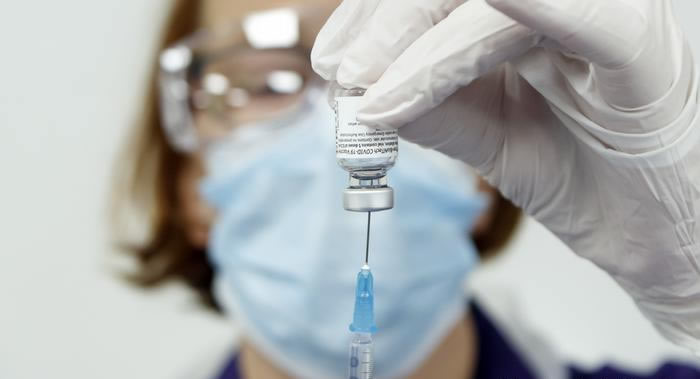UK doctors urge shorter gap between vaccine doses
- 25-01-2021
- Business
- Canarian Weekly
The British Medical Association (BMA) has called on health officials and the government to reconsider the gap between the two doses of the BioNTech-Pfizer coronavirus vaccine. In a statement emailed to England's chief medical officer, the doctors' group called for officials to "urgently review the UK's current position of second doses after 12 weeks."
The BMA said there was "growing concern from the medical profession regarding the delay of the second dose of the Pfizer-BioNTech vaccine as Britain's strategy has become increasingly isolated from that of many other countries.''
"BMA members are also concerned that, given the unpredictability of supplies, there may not be any guarantees that second doses of the Pfizer vaccine will be available in 12 weeks' time," the statement added.
The UK currently allows up to 12 weeks between coronavirus vaccine doses, a time frame fits with the vaccine developed by AstraZeneca and Oxford University. The vaccine's producers said they believe the first dose of the jab continues to offer protection after 12 weeks.
But BioNTech and Pfizer say they haven't tested the efficacy of its vaccine after such a long gap and recommend a shorter period between the shots, and the World Health Organization has said the second dose of the vaccine could be given after six weeks, but only "in exceptional circumstances."
Why is the UK delaying the second dose?
The British government and health officials are prioritizing first doses of Covid-19 vaccines in a bid to give as many people as possible some initial protection and reduce hospital admissions.
Researchers in the UK are also measuring antibodies in the blood of people who have been vaccinated, to better understand the best timing for the shots.
Chris Whitty, the British government's chief medical officer, said on Friday that the longer gap was a "public health decision" that was based on a belief that the majority of protection against the coronavirus comes from the first dose of the vaccine.
Yvonne Doyle, medical director of Public Health England, also defended the government's policy, saying it was "a reasonable scientific balance on the basis of both supply and also protecting the most people.''
Up to now, nearly 5.5 million people in the UK have received at least one dose of either the BioNTech-Pfizer vaccine or the AstraZeneca/Oxford jab.
Other articles that may interest you...
Trending
Most Read Articles
Featured Videos
A Vision of Elvis Tenerife Promo
- 10-05-2025
TEAs 2025 Highlights
- 17-11-2025

























































